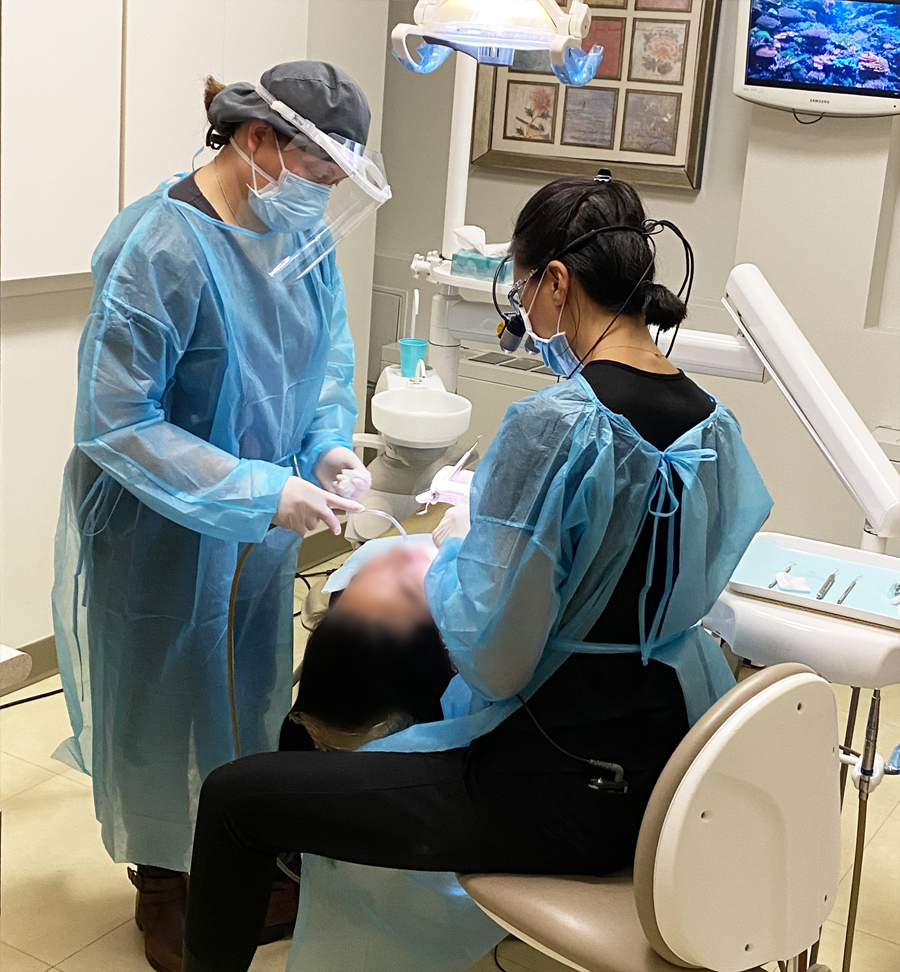Experience Comprehensive Dental Care with a Trusted Eugene Dentist
Experience Comprehensive Dental Care with a Trusted Eugene Dentist
Blog Article
A Guide to Common Dental Problems That Call for a Dental professional's Treatment
Recognizing the variety of oral conditions that require specialist care is paramount for keeping ideal dental health and wellness. Toothaches, for instance, can be symptomatic of extreme problems such as cavities, cracked teeth, or abscesses, each calling for specific interventions like dental fillings or origin canals. Periodontal illness, from the beginning of gingivitis to extra serious periodontitis, highlights the significance of regular oral check-ups and cleansings. In addition, affected knowledge teeth and jaw conditions can present significant pain and difficulties. Making certain prompt check outs to the dental practitioner can alleviate these problems efficiently, yet what precisely are the therapies and signs entailed?
Toothaches
Toothaches are an usual oral condition that can range from light discomfort to severe discomfort, commonly indicating an underlying problem that calls for professional focus. This pain can come from a selection of resources, including dental tooth cavities, cracked or fractured teeth, and dental abscesses. Each of these conditions positions considerable dangers if left untreated, potentially leading to a lot more extreme complications.
Oral tooth cavities, also understood as cavities, are triggered by the accumulation of plaque that erodes tooth enamel, leading to holes or pits in the impacted teeth. Fractured or fractured teeth, on the other hand, may result from trauma, grinding, or attacking right into tough objects. These structural damages can subject the delicate inner layers of the tooth, triggering sharp discomfort and raising the threat of infection. Abscesses are uncomfortable infections at the origin of a tooth or in between a tooth and the gum tissue, generally resulting from serious decay or without treatment cavities.
Efficient treatment of toothaches involves addressing the origin. This may consist of fillings for dental caries, crowns for fractured teeth, or root canals and prescription antibiotics for abscesses. Early treatment by a dental specialist can stop additional damage and minimize pain, making certain ideal oral wellness.
Periodontal Disease

The main source of gum tissue illness is bacterial plaque, a sticky, colorless movie that frequently creates on teeth. Poor oral health, smoking, hereditary predisposition, and certain medical conditions, such as diabetes, can exacerbate the risk of creating gum tissue illness. Routine dental examinations are vital for early detection and management of this condition.
Treatment for periodontal condition ranges from expert oral cleaning and scaling to more innovative treatments like origin planing and gum surgical procedure, depending on the seriousness. Keeping excellent dental hygiene practices, consisting of brushing two times daily, flossing, and making use of a disinfectant mouthwash, can significantly decrease the risk of gum tissue illness and promote healthier gum tissues.
Tooth Cavities
Cavities, also recognized as tooth decays, are an usual oral condition identified by the damage of tooth enamel due to acid-producing bacteria in the mouth. These bacteria grow on sugars and starches from food and beverages, producing acids that progressively deteriorate the enamel, bring about tooth cavity development.
Early-stage tooth cavities might disappoint signs, but as they advance, they can create tooth pain, level of sensitivity to warm or cold, noticeable holes or pits in the teeth, and discoloration. If left untreated, tooth cavities can penetrate deeper layers of the tooth, potentially leading to serious pain, infection, and even missing teeth.
Preventing cavities entails a mix of excellent oral hygiene methods and dietary routines. Routine cleaning with fluoride toothpaste, flossing, and regular oral exams are crucial. Dentists might additionally recommend my link added preventive steps, such as fluoride therapies and dental sealers, to protect teeth from decay.
Small dental caries can be attended to with oral fillings, which recover the tooth's structure. A lot more innovative situations may require crowns or even root canal treatment if the decay has gotten to the tooth's pulp.
Impacted Wisdom Teeth
Influenced knowledge teeth are a common oral problem that occurs when the third molars, generally referred to as knowledge teeth, fall short to fully arise or align correctly within the mouth. This problem typically results from inadequate space in the jaw or an irregular growth angle of the teeth. Impacted knowledge teeth can result in a variety of complications, including infection, damages, and pain to adjacent teeth.
When knowledge teeth end up being affected, they are often partly erupted or continue to be completely below the periodontal line. This partial eruption can produce a path for germs to get in the gum tissues, bring about infections that materialize as swelling, discomfort, and even fever (dentist eugene or). In addition, impacted knowledge teeth can put in stress on bordering teeth, possibly causing crowding or changing
An extensive oral evaluation, typically entailing X-rays, is crucial for detecting influenced wisdom teeth. Routine dental exams are a good idea to keep an eye on the problem and keep dental wellness.
Jaw Conditions
Conclusion

Dental check my reference dental caries, also understood as caries, are caused by the build-up of plaque that wears down tooth enamel, leading to holes or pits in the affected teeth. Abscesses are unpleasant infections at the root of a tooth or between a tooth and the periodontal, commonly resulting from severe decay or without treatment dental caries.
Impacted wisdom teeth are a widespread oral issue that happens when the third molars, commonly referred to as wisdom teeth, fall short to totally emerge or straighten effectively within the mouth. this contact form Influenced knowledge teeth can lead to a range of difficulties, consisting of damages, infection, and discomfort to surrounding teeth.
Furthermore, influenced knowledge teeth can put in pressure on bordering teeth, potentially causing crowding or changing.
Report this page